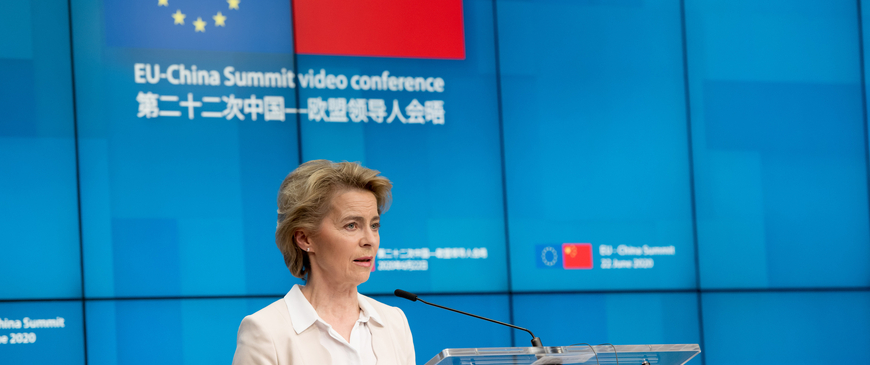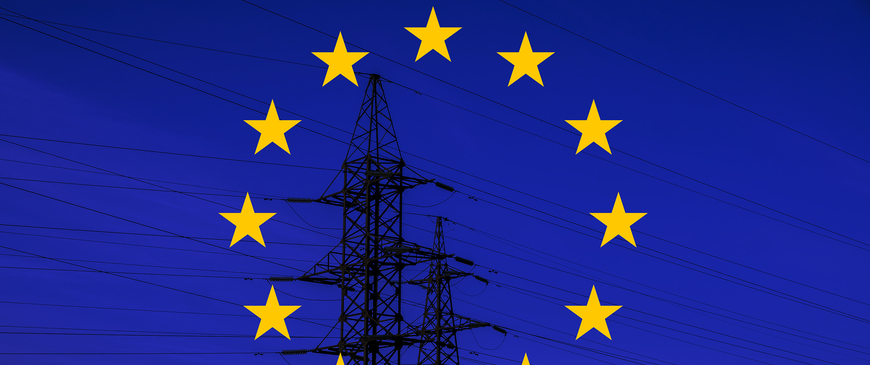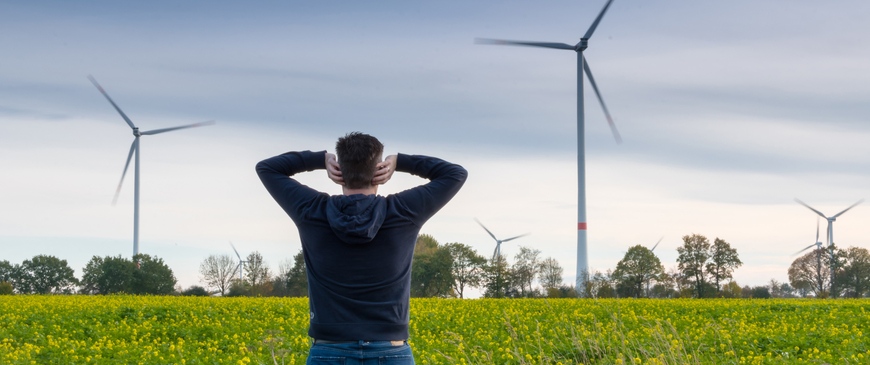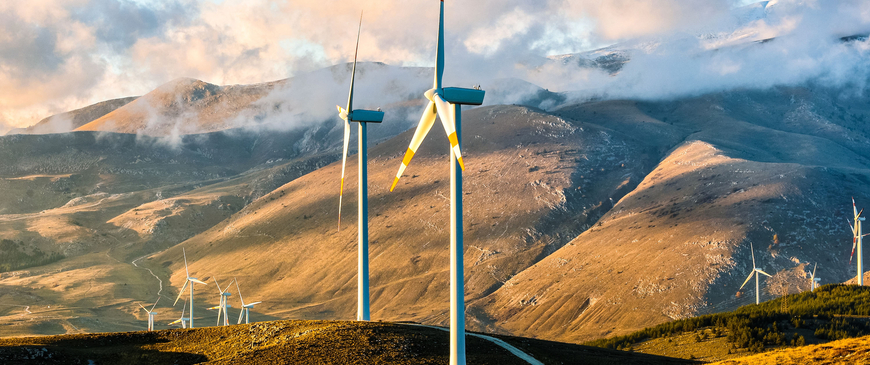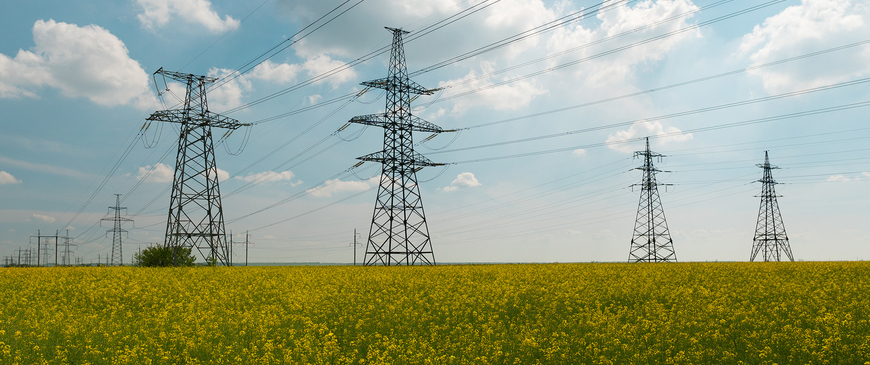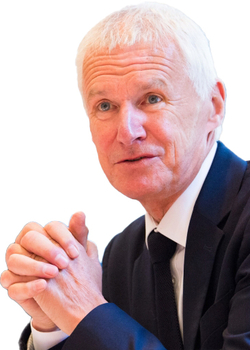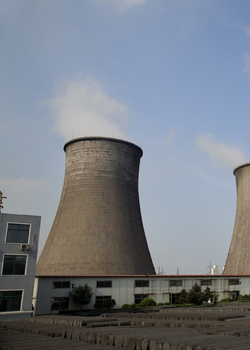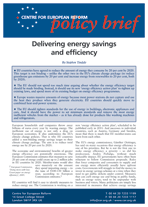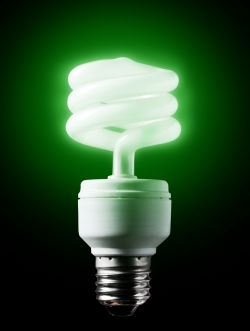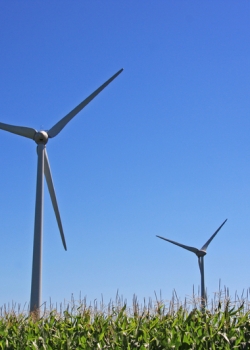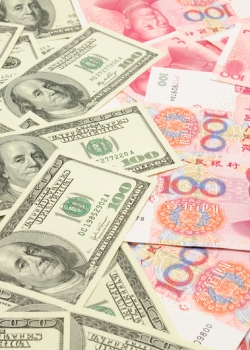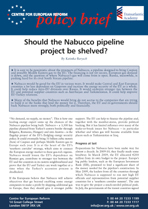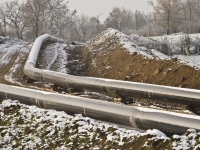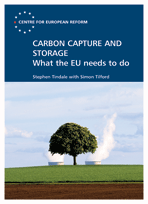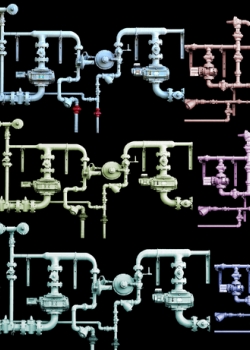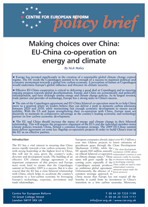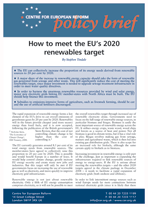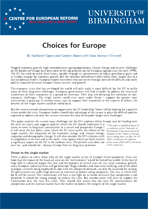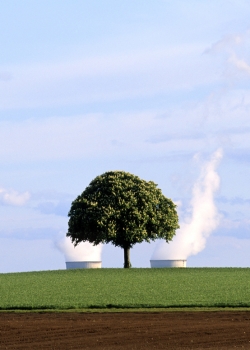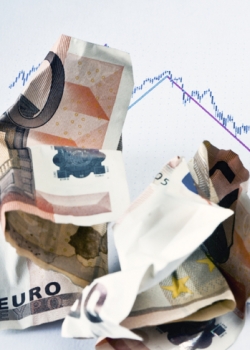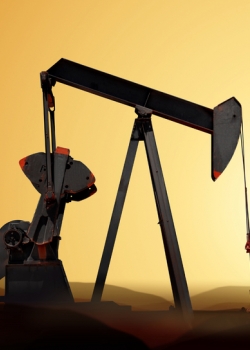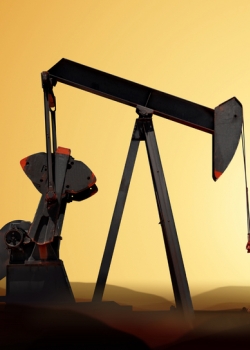Energy & climate
Carbon capture and storage: EU advancing, but not fast enough
03 June 2011
TGAE report
Carbon capture and storage (CCS) is an essential low-carbon bridge technology, to be used in the several decades it will take before Europe can be totally reliant on renewable energy.
Delivering energy savings and efficiency
19 January 2011
The EU should not waste its time arguing about whether to make its energy efficiency targets binding. Instead, it should focus on practical steps to improve energy efficiency. In this new CER policy brief Stephen Tindale calls for a strengthening of the EU's so-called 'combined heat and power directive' to...
The EU should be much bolder on energy efficiency
12 October 2010
The most pain-free way for European governments to fight climate change is to use energy more efficiently. At a recent energy conference hosted by the European Commission, it struck me that the EU still has a poverty of ambition when it comes to energy efficiency.
The EU must support clean energy, not dirty coal
02 August 2010
The EU aspires to be a world leader in reducing carbon emissions. It seeks to develop renewable sources of energy and new ways of making coal and gas cleaner.
Issue 73 - 2010
30 July 2010
- The US-China 'reset': An opportunity for the EU, Charles Grant
- The EU must support clean energy, not dirty coal, Stephen Tindale
- A childish take on the eurozone crisis, Philip Whyte
Shale gas and EU energy security
11 June 2010
Will unconventional gas solve Europe’s energy security problem? Many EU member-states rely a lot on Russian gas; in the case of some Central and East European countries the dependence is total.
Should the Nabucco pipeline project be shelved?
05 May 2010
Nabucco - a pipeline to bring Caspian and perhaps Middle Eastern gas to Europe - is the flagship project of the EU's fledgling energy diplomacy. Nabucco would add to the EU's energy security, strengthen its neighbourhood policies and improve relations with Turkey.
Weak carbon prices threaten the EU’s environmental leadership
05 March 2010
TGAE report
The EU’s Emissions Trading Scheme (EU ETS) works by capping the output of carbon dioxide and then distributing allowances to emit the gas to large energy users.
How to build an EU energy market
18 February 2010
Unbundling the supply of energy from its transport, moving Europe towards a low-carbon energy system, and getting the Nabucco pipeline built – these were the priorities of the last energy commissioner, Andris Piebalgs. His successor, Günther Oettinger, will write his own to-do list. The EU now has a dedicated climate change commissioner, Connie Hedegard, with whom Oettinger will have to work closely.
Carbon capture and storage: What the EU needs to do
12 February 2010
Coal will be the biggest single source of electricity for decades to come. Yet the EU is doing far too little to encourage the take-up of carbon capture and storage, a technology which could make coal a low-carbon fuel.
Pipeline politics: Why Nabucco is stuck
29 January 2010
Last year, plans for the Nabucco pipeline – almost a decade in the making – appeared finally to make some headway. In March, the EU earmarked €200 million for preparatory work.
Gazprom’s uncertain outlook
18 December 2009
Many people in the EU tend to see Gazprom as a mighty giant that uses energy as a political tool on behalf of the Kremlin. They say that Russia has leverage because it controls 40 per cent of the EU’s gas imports.
Making choices over China: EU-China co-operation on energy and climate
02 November 2009
The EU needs China to move rapidly towards a low carbon economy. Even with strong leadership at the highest level in China, this will not be easy, given the country's scale, diversity and development needs.
How to meet the EU's 2020 renewables target
01 September 2009
The EU countries have promised to get 20 per cent of their energy from renewables by 2020. The EU can meet this target but only if governments take action now to boost investment in the full range of renewable energies.
Choices for Europe
01 May 2009
CER - University of Birmingham
Sluggish economic growth, high unemployment, ageing populations, climate change and security challenges on the borders of Europe have been some of the top priorities on the European agenda since the early 1990s. The EU has tried to tackle these issues, notably through its commitments to reduce greenhouse gases and its Lisbon strategy for economic growth.
Carbon price collapse threatens the EU's climate agenda
01 April 2009
The EU’s emissions trading scheme (ETS) works by capping the output of carbon dioxide and then distributing allowances to emit the gas to large energy users.
Issue 65 - 2009
27 March 2009
- Europe's flagging response to the financial crisis , Philip Whyte
- Carbon price collapse threatens the EU's climate agenda, Simon Tilford
- In the name of EU solidarity, Katinka Barysch
Georgia, Ukraine and energy security
02 February 2009
In January 2006 Russia interrupted gas supplies to Ukraine and triggered a short, sharp shock to Europe in its ever-growing dependency on Russian gas.
Why global energy markets need governing
02 February 2009
After a year of upheaval it may seem perverse to take the world’s financial system as a model for anything – least of all for governance.
Issue 64 - 2009
30 January 2009
- Why global energy markets need governing, Nick Butler
- Georgia, Ukraine and energy security, Dieter Helm
- Obama, disarmament and Iran, Tomas Valasek

